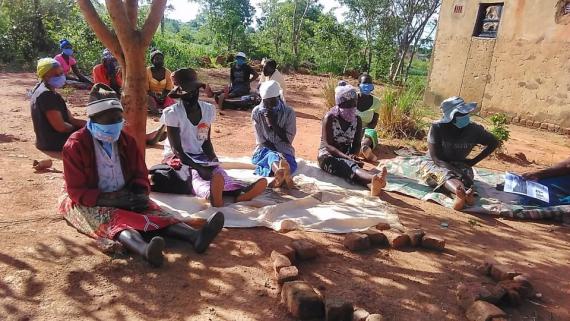
BY MIRIAM MANGWAYA ONLY 1% of the rural population benefited from government-funded social safety nets during the COVID-19 pandemic, a survey by the Zimbabwe National Statistics Agency (ZimStat) has revealed.
Their urban counterparts are said to have benefited more at 7% through cash transfer programmes, food assistance and other forms of benefits.
Government availed funds to cushion vulnerable citizens during the COVID-19 pandemic-induced hardships, surprisingly little of the funds reached rural areas which have been major beneficiaries of past government handouts.
The ZimStat survey, conducted through telephone interviews, was done in partnership with the World Bank and Unicef.
It also revealed that some of the safety net programmes excluded women, while males were the majority beneficiaries.
The survey, based on the poverty, income, consumption and expenditure surveys of 2017 and 2019, was meant to measure the socio-economic impact of COVID-19 in Zimbabwe; and sampled households in Zimbabwe’s 10 provinces.
Presenting the report, World Bank economist Dhiraj Sharma said: “About 7% of households in urban areas received COVID-19 cash transfers, while their rural counterparts received only 1%. Nationally, about 3% of households were covered by social safety nets. About 1% of national households received food for assistance in round six, which is much lower than the national coverage rate of 12% in round 4 (November 2021). This is likely due to the timing of the survey and good agricultural season as food assistance is provided during the lean season to food insecure households.”
Public Service minister Paul Mavima said the urban population mainly benefited from cash transfers while their rural counterparts received grain.
- Chamisa under fire over US$120K donation
- Mavhunga puts DeMbare into Chibuku quarterfinals
- Pension funds bet on Cabora Bassa oilfields
- Councils defy govt fire tender directive
Keep Reading
“It is not like the urban population is favoured. However, where we give cash transfers to them, we give grain to their rural counterparts. So it will appear as if more of the urban dwellers benefited when all of them benefited but in different forms. However, the cash transfers are also considered for the most vulnerable rural households, which need money to buy basic commodities other than mealie-meal,” Mavima said.
A report by Auditor-General Mildred Chiri on utilisation of public resources by government departments in combating the COVID-19 pandemic revealed that over $890 million was misappropriated, with undeserving government officials and individuals benefiting.
Women’s rights activist, Cynthia Muchanyara Mukamuri said exclusion of women in access to resources had a serious impact on the welfare of communities.
“It is because men are dominating top decision-making processes. There is an unfair distribution of resources in the country. Women are considered second-class citizens and they are lagging behind in every aspect of the economy. We have made various calls for equity in distribution of resources but no action has been taken. Authorities need to up their game in promoting balance between men and women in access to resources,” she said.
- Follow Miriam onTwitter @FloMangwaya











